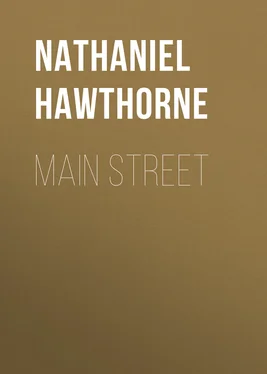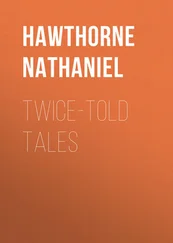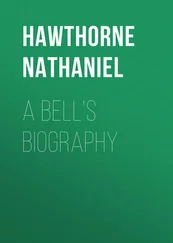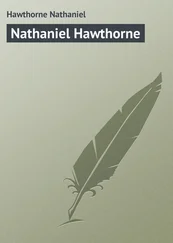Nathaniel Hawthorne - Main Street
Здесь есть возможность читать онлайн «Nathaniel Hawthorne - Main Street» — ознакомительный отрывок электронной книги совершенно бесплатно, а после прочтения отрывка купить полную версию. В некоторых случаях можно слушать аудио, скачать через торрент в формате fb2 и присутствует краткое содержание. Жанр: Альтернативная история, Исторические приключения, на английском языке. Описание произведения, (предисловие) а так же отзывы посетителей доступны на портале библиотеки ЛибКат.
- Название:Main Street
- Автор:
- Жанр:
- Год:неизвестен
- ISBN:нет данных
- Рейтинг книги:3 / 5. Голосов: 1
-
Избранное:Добавить в избранное
- Отзывы:
-
Ваша оценка:
- 60
- 1
- 2
- 3
- 4
- 5
Main Street: краткое содержание, описание и аннотация
Предлагаем к чтению аннотацию, описание, краткое содержание или предисловие (зависит от того, что написал сам автор книги «Main Street»). Если вы не нашли необходимую информацию о книге — напишите в комментариях, мы постараемся отыскать её.
Main Street — читать онлайн ознакомительный отрывок
Ниже представлен текст книги, разбитый по страницам. Система сохранения места последней прочитанной страницы, позволяет с удобством читать онлайн бесплатно книгу «Main Street», без необходимости каждый раз заново искать на чём Вы остановились. Поставьте закладку, и сможете в любой момент перейти на страницу, на которой закончили чтение.
Интервал:
Закладка:
Nathaniel Hawthorne
Main Street / (From: «The Snow Image and Other Twice-Told Tales»)
Respectable-looking individual makes his bow and addresses the public. In my daily walks along the principal street of my native town, it has often occurred to me, that, if its growth from infancy upward, and the vicissitude of characteristic scenes that have passed along this thoroughfare during the more than two centuries of its existence, could be presented to the eye in a shifting panorama, it would bean exceedingly effective method of illustrating the march of time. Acting on this idea, I have contrived a certain pictorial exhibition, somewhat in the nature of a puppet-show, by means of which I propose to call up the multiform and many-colored Past before the spectator, and show him the ghosts of his forefathers, amid a succession of historic incidents, with no greater trouble than the turning of a crank. Be pleased, therefore, my indulgent patrons, to walk into the show-room, and take your seats before yonder mysterious curtain. The little wheels and springs of my machinery have been well oiled; a multitude of puppets are dressed in character, representing all varieties of fashion, from the Puritan cloak and jerkin to the latest Oak Hall coat; the lamps are trimmed, and shall brighten into noontide sunshine, or fade away in moonlight, or muffle their brilliancy in a November cloud, as the nature of the scene may require; and, in short, the exhibition is just ready to commence. Unless something should go wrong,—as, for instance, the misplacing of a picture, whereby the people and events of one century might be thrust into the middle of another; or the breaking of a wire, which would bring the course of time to a sudden period,—barring, I say, the casualties to which such a complicated piece of mechanism is liable,—I flatter myself, ladies and gentlemen,—that the performance will elicit your generous approbation.
Ting-a-ting-ting! goes the bell; the curtain rises; and we behold-not, indeed, the Main Street—but the track of leaf-strewn forest-land over which its dusty pavement is hereafter to extend.
You perceive, at a glance, that this is the ancient and primitive wood,—the ever-youthful and venerably old,—verdant with new twigs, yet hoary, as it were, with the snowfall of innumerable years, that have accumulated upon its intermingled branches. The white man’s axe has never smitten a single tree; his footstep has never crumpled a single one of the withered leaves, which all the autumns since the flood have been harvesting beneath. Yet, see! along through the vista of impending boughs, there is already a faintly traced path, running nearly east and west, as if a prophecy or foreboding of the future street had stolen into the heart of the solemn old wood. Onward goes this hardly perceptible track, now ascending over a natural swell of land, now subsiding gently into a hollow; traversed here by a little streamlet, which glitters like a snake through the gleam of sunshine, and quickly hides itself among the underbrush, in its quest for the neighboring cove; and impeded there by the massy corpse of a giant of the forest, which had lived out its incalculable term of life, and been overthrown by mere old age, and lies buried in the new vegetation that is born of its decay. What footsteps can have worn this half-seen path? Hark! Do we not hear them now rustling softly over the leaves? We discern an Indian woman,—a majestic and queenly woman, or else her spectral image does not represent her truly,—for this is the great Squaw Sachem, whose rule, with that of her sons, extends from Mystic to Agawam. That red chief, who stalks by her side, is Wappacowet, her second husband, the priest and magician, whose incantations shall hereafter affright the pale-faced settlers with grisly phantoms, dancing and shrieking in the woods, at midnight. But greater would be the affright of the Indian necromancer, if, mirrored in the pool of water at his feet, he could catch a prophetic glimpse of the noonday marvels which the white man is destined to achieve; if he could see, as in a dream, the stone front of the stately hall, which will cast its shadow over this very spot; if he could be aware that the future edifice will contain a noble Museum, where, among countless curiosities of earth and sea, a few Indian arrow-heads shall be treasured up as memorials of a vanished race!
No such forebodings disturb the Squaw Sachem and Wappacowet. They pass on, beneath the tangled shade, holding high talk on matters of state and religion, and imagine, doubtless, that their own system of affairs will endure forever. Meanwhile, how full of its own proper life is the scene that lies around them! The gray squirrel runs up the trees, and rustles among the upper branches. Was not that the leap of a deer? And there is the whirr of a partridge! Methinks, too, I catch the cruel and stealthy eye of a wolf, as he draws back into yonder impervious density of underbrush. So, there, amid the murmur of boughs, go the Indian queen and the Indian priest; while the gloom of the broad wilderness impends over them, and its sombre mystery invests them as with something preternatural; and only momentary streaks of quivering sunlight, once in a great while, find their way down, and glimmer among the feathers in their dusky hair. Can it be that the thronged street of a city will ever pass into this twilight solitude,—over those soft heaps of the decaying tree-trunks, and through the swampy places, green with water-moss, and penetrate that hopeless entanglement of great trees, which have been uprooted and tossed together by a whirlwind? It has been a wilderness from the creation. Must it not be a wilderness forever?
Here an acidulous-looking gentleman in blue glasses, with bows of Berlin steel, who has taken a seat at the extremity of the front row, begins, at this early stage of the exhibition, to criticise.
“The whole affair is a manifest catchpenny!” observes he, scarcely under his breath. “The trees look more like weeds in a garden than a primitive forest; the Squaw Sachem and Wappacowet are stiff in their pasteboard joints; and the squirrels, the deer, and the wolf move with all the grace of a child’s wooden monkey, sliding up and down a stick.”
“I am obliged to you, sir, for the candor of your remarks,” replies the showman, with a bow. “Perhaps they are just. Human art has its limits, and we must now and then ask a little aid from the spectator’s imagination.”
“You will get no such aid from mine,” responds the critic. “I make it a point to see things precisely as they are. But come! go ahead! the stage is waiting!”
The showman proceeds.
Casting our eyes again over the scene, we perceive that strangers have found their way into the solitary place. In more than one spot, among the trees, an upheaved axe is glittering in the sunshine. Roger Conant, the first settler in Naumkeag, has built his dwelling, months ago, on the border of the forest-path; and at this moment he comes eastward through the vista of woods, with his gun over his shoulder, bringing home the choice portions of a deer. His stalwart figure, clad in a leathern jerkin and breeches of the same, strides sturdily onward, with such an air of physical force and energy that we might almost expect the very trees to stand aside, and give him room to pass. And so, indeed, they must; for, humble as is his name in history, Roger Conant still is of that class of men who do not merely find, but make, their place in the system of human affairs; a man of thoughtful strength, he has planted the germ of a city. There stands his habitation, showing in its rough architecture some features of the Indian wigwam, and some of the log-cabin, and somewhat, too, of the straw-thatched cottage in Old England, where this good yeoman had his birth and breeding. The dwelling is surrounded by a cleared space of a few acres, where Indian corn grows thrivingly among the stumps of the trees; while the dark forest hems it in, and scenes to gaze silently and solemnly, as if wondering at the breadth of sunshine which the white man spreads around him. An Indian, half hidden in the dusky shade, is gazing and wondering too.
Читать дальшеИнтервал:
Закладка:
Похожие книги на «Main Street»
Представляем Вашему вниманию похожие книги на «Main Street» списком для выбора. Мы отобрали схожую по названию и смыслу литературу в надежде предоставить читателям больше вариантов отыскать новые, интересные, ещё непрочитанные произведения.
Обсуждение, отзывы о книге «Main Street» и просто собственные мнения читателей. Оставьте ваши комментарии, напишите, что Вы думаете о произведении, его смысле или главных героях. Укажите что конкретно понравилось, а что нет, и почему Вы так считаете.












